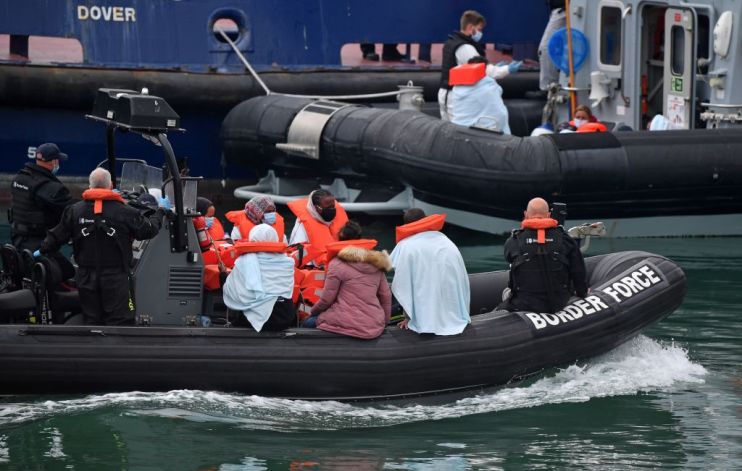UK considers plan to ‘disable’ Channel migrant boats with nets

The government is considering plans to “disable” boats carrying migrants across the Channel by using nets to stop them from reaching the UK, according to the new man in charge of stopping illegal crossings.
The UK has seen a marked increase in illegal Channel crossings this year, with more than 1,500 people crossing by boat last month – a new high.
The total figure for 2020 is around 7,0000.
Dan O’Mahoney, the new Clandestine Channel Threat Commander, told the Sunday Telegraph that the UK was close to deploying a “safe return tactic” that would immobilise incoming boats, before escorting the occupants back to France.
Asked if the method being considered would see nets disable the propellors of boats, he said: “It’s that type of thing, yes.
“So, safely disabling the engine and then taking the migrants on board our vessel.”
Before the Open newsletter: Start your day with the City View podcast and key market data
However, O’Mahoney said that the French authorities are currently refusing to accept turned back vessels.
“But given that we’re not using them yet I’m not at liberty to go into detail about them.”
The new border supremo also said he was drawing up a social media campaign to tell immigrants in Africa and the Middle East to seek aslyum in the first safe European country they reach as per international law.
The Home Office has been looking at different ways of stopping illegal boats, mostly dinghies, making the dangerous voyage across the English Channel.
Some of the options home secretary Priti Patel has considered includes sending asylum seekers to an offshore island in the Atlantic Ocean and using a so-called wave machine to turn back boats.
Patel said in her Tory party conference speech last week that she would deliver the largest overhaul of the UK’s asylum system in decades.
“After decades of inaction by successive governments we will address the moral, legal and practical problems with the asylum system, because what exists now is neither firm nor fair,” she said.
Patel added: “Right now, the most vulnerable are stuck in this broken system, with over forty thousand other people.
“Almost half of these claims take a year or more to reach a decision.”